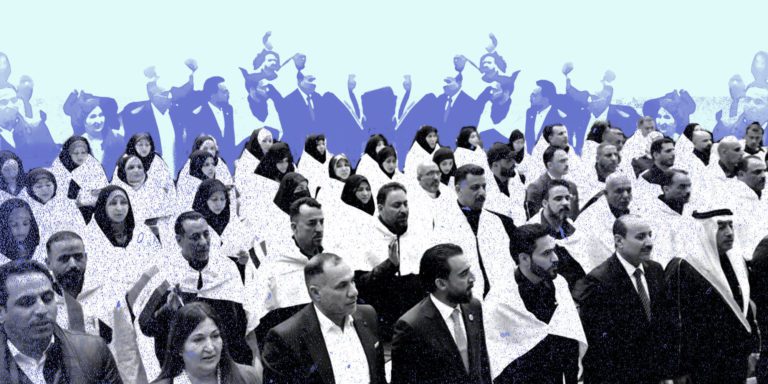She suddenly entered the fine art shop in Baghdad’s Karrada Street, as the owner was showing us the works of Iraqi painters. The young girl, not more than 25 years old, asked him, as if sharing a secret: “Uncle, can I smoke a cigarette here?”
The question came as a kind of shock to me. I looked at the shopkeeper’s face to see his reaction and saw him smiling. He nodded his head in agreement. The girl took a cigarette from the pack in her bag and lit it.
I asked them what had just happened. I did not understand. Why would a young girl enter a closed shop and ask for permission to smoke a cigarette, while she could simply light it outside? Isn’t that normal? I mean, usually, when you are indoors, you go out to smoke and naturally you do not need permission to do so.
For a while I thought smoking was forbidden in Iraq, due to one of the strange oppressive laws inherited from the Saddam Hussein era. If not, why would a girl enter a fine art shop in an alley to light a cigarette? While the owner of the shop smiled and followed us with his eyes, the girl explained that women in Iraq cannot smoke in the street. It is the new norm that touches upon being a taboo.
Women smoking in a public space is considered a defect. Those who dare smoke in the street will not escape the shameful looks, and are likely to be pursued by offensive remarks by male onlookers. Even some of the more masculine women may take part in the reprimanding party if a girl or woman dares to light a cigarette.
Naturally, this “custom” does not apply to men. Men can smoke as they please. They smoke, throw the cigarette butts on the floor and trample them. No problem.
The Café
Later that day, in one of the cafés in the same street there were some women smoking cigarettes, while others smoked a hookah (waterpipe). The café, according to the German sociologist Jürgen Habermas, is a public space. It is supposed to be like the street.
However, in Baghdad it is more “public” than a street, as it leaves more space for women. The street is overcrowded with men and their patriarchal norms. And Baghdad, as they say, is of course the most open Iraqi city, if we exclude the cities of Erbil and Sulaymaniyah in the Kurdistan region.
Mosul
As a group of Daraj journalists visiting Iraq, we had the opportunity to see only three cities: Erbil, Mosul and the capital Baghdad, where we ended our visit. What struck me is that in Erbil you can see a female presence in the streets, cafés, markets, cars and other means of transportation. Among them, many women who do not wear the veil.
However, in Mosul, the city liberated from ISIS and today “occupied” by the Popular Mobilization Forces (PMF), we did not notice any female presence in the public space. We took a car ride through the city, which ISIS occupied for years before its liberation in 2017, and we sat for over two hours in a cultural forum for writers. Had it not been for the presence of our two female Daraj colleagues, we only saw men.
There was a toilet for women, which means it is likely they will visit the place. Yet, it later turned out that the ladies bathroom is open to men and everyone acted as if women were just non-existent.
A visit of a few hours to a historical city such as Mosul is not enough to judge it, but three hours without seeing a woman or girl in the street, café, or even behind the wheel, is certainly an indication of how things are. Just like the girl hiding in a shop to smoke.
The two incidents say a lot about the current situation of women in Iraq. Paradoxically, the recent Iraqi elections awarded the 97 parliamentary seats to women, exceeding the quota of 25 percent.
However, most of these parliamentarians belong to a conservative political bloc and so it is questionable if they will influence legislation related to women’s rights. The paradoxes above perhaps help explain the “crazy” news that periodically appears in Iraqi media about women being killed for seemingly trivial reasons.
Take the YouTuber killing his underage daughter because he saw her talking to a young man in front of the house. Or the man burning a girl’s face because she refused his marriage proposal. Or the young man killing his transgender sister with the family’s blessing.
In the fine art store in Baghdad, the girl continued smoking her cigarette. In the rising smoke, those who meditate can see the signs of oppression of Iraqi women. The girl put out the cigarette as if to extinguish a forbidden desire, and left. Back to the street, disciplined by the rhythm of the man.
Read Also:







